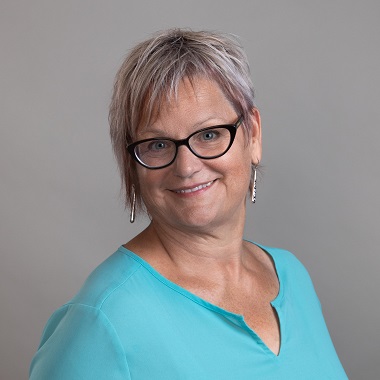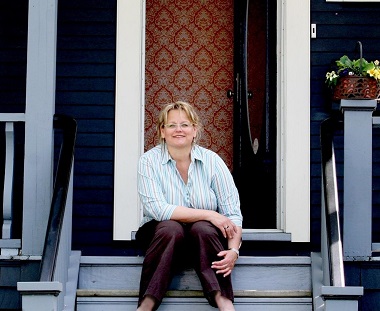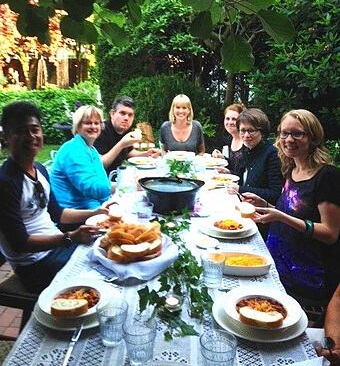
Karen Reed is determined to foster closer relationships with her neighbours, even during the pandemic.
This weekly editorial gives opportunity for people to speak about issues they believe are vital for the church to respond to.
One of the goals of this weekly article is to spark dialogue – and action. We invite you to join the dialogue, either here on Church for Vancouver or on the CityGate Vancouver website.
We also invite you to use the article as a discussion starter with your church small group, your church staff, your friends or your neighbours. Feel free to re-post the article on your own social media. Thanks for participating in the conversation!
In the midst of all the immeasurable pain and suffering during the pandemic, many people have expressed a heightened awareness of their priority of values and what is important in their lives.
Often, I have wondered what God is up to in all these disruptions, which feel like global earthquakes, watching for how He will work-this-for-good and how am I to join in His work.
I am curious if one thing God may be doing in this hard season is to increase our value and importance of neighbour?
Over the last 10 years, I have been seeking to deepen my practices that embody my love for God by the way I love my neighbours. Covid restrictions have of course increased the challenges of these efforts.
It has been hard to be creative, to find ways to nurture connection within the boundaries set. I keep experimenting and leaning into this, out of a deep conviction that Jesus was serious about His expectation for us to live this out, on the ground, in our neighbourhoods (remembering the most important and mutually dependent commandments in Matthew 22.37).
It helps me to make the connection between these primary directives by framing it as: loving God by loving neighbour, enjoying neighbour as a way to enjoy God, growing friendship with neighbour as a way to grow friendship with God – and I would add: listening to neighbour and your community as a way to listen to God.
So, where is loving neighbour held in your priority of time (which reflects most profoundly our values)?
In 2014, the Vancouver Foundation offered their extensive research on core issues in the city, revealing loneliness as the primary concern, and one that impacts every domain. They showed that one in four people is isolated, spending more time alone than they would like.
Covid has escalated the isolation to dangerous levels and exposed the reality that we in fact need our neighbours more than we have known.
Over the decades, the historic nature of neighbourhoods has been eroded, and neighborliness seems to have become a lost art in Canada. Our lives have become so fragmented and privatized and independent – which has set a course for isolation and alienation – that we have learned to function in our daily life without knowing even one neighbour’s name.
The pandemic has increased our understanding about the richness of life that has been lost with our independent lives, exposing the delusion of self-sufficiency and revealing how much we in fact depend on and need each other for our very lives and well-being.
Times of disruptions – like we are experiencing – are often times that reveal, lifting the veil on issues that have been ignored, neglected or hidden. For many who can work from home, more margin has awakened a taste for a lifestyle that isn’t hyper-busy (busyness often contributes to the delusion of autonomy).
A culture built on speed tends to neglect relationships, especially those deemed optional, like neighbours. The simple, ordinary practices like baking, gardening, playing cards, doing puzzles and chatting with neighbours are being rediscovered as a foundation for living well.
They root us in our places. Can neighbours help us to not return to numbing practices that entertain, but don’t nourish our flourishing? Could those who follow Christ lead the way in neighborliness?
The close proximity and the frequency of opportunities to chat with neighbours builds what is considered social capital, that relational fabric in a community. Sociologists have been sounding the alarm regarding our plummeting social capital – the absence of it, impoverishing our lives and communities. It is what builds civil society (which is the basis of our democracy) and more than anything, this social connectedness is a primary contributor to a person’s sense of wellness.
As Christians, we understand holistic well-being more comprehensively in the idea of shalom. God’s kingdom of shalom restores and renews all of life, so that all people and all places flourish.
This is God’s work that we are invited to join in. He alone is the agent to bring this about. We participate with God as His instruments in this renewing work as we love our neighbours well. And we flourish as we enable our neighbours to flourish – as God’s ways are always mutually transforming (Jeremiah 29.7: ‘Seek the welfare of the city, for its welfare determines your welfare’). To live well is to love well.
I am convinced that the local neighbourhood is the best context in which the shalom of God can flourish. As we build a web of care within our neighbourhoods, resiliency can be strengthened, and thinness of community can be thickened.
Neighbourliness deepens our connection to place and nurtures compassion, and it provides a social fabric that increases stability. Alan Hirsch reminds us that to connect in our neighbourhood we need proximity, frequency and spontaneity.

Karen often sits on her front porch to engage with passers-by.
As a household, we have sought in the last two years, to be especially attentive to our neighbours who live alone, seeking to find simple ways to stay connected.
During the warmer months, I intentionally try to sit on my porch every day in the morning and in the evening, enabling casual conversations with neighbours that frequently walk by.
Previously, we hosted regular soup nights for the neighbourhood, so we had begun to establish rhythms of hospitality where neighbours learned our lifestyle of welcome and would fairly consistently come for small or large gatherings to our home.
During Covid we have met in the backyard – in small groups, following provincial guidelines. As fall approached, we installed a large canopy (10 x 13 feet) in the backyard, along with a radiant heater and firepot. This enabled us – along with warm clothes – to continue to meet with neighbours (usually just two to four people at a time).
Thanksgiving, Christmas and Easter dinners were hosted under the canopy – with two small tables set around the firepot – to enable a few neighbours to be included in special holidays (we normally would have had 12 to 16 neighbours for these celebrations).
We also hosted movie nights for a few children under the canopy, serving hot chocolate and popcorn while the rain blew hard on the canvas. Even in yucky weather – if you are able to stay dry and warm with plenty of blankets – watching a movie outside together seems to be more fun!
As the pandemic lingered, most of us experienced the hunger in people to connect and converse. By creatively providing safe space to gather outside regardless of the weather, we could have visits with neighbours several times a week. The conversations deepened – and lengthened; as in all times of crisis, marginal issues become sidelined.

Outdoor meals continue at Parker House, though most have been smaller during Covid.
When restrictions opened up for larger outdoor gatherings, we sought ways to host get togethers in safe ways for those who were vaccinated.
A backyard concert, a garden party and a joint outside social hosted together with my immediate neighbour, are some of the events that gathered about 15 to 20 neighbours each time.
In the early months, I organized a zoom gathering with a psychologist friend who led a discussion on Covid and mental health. Zoom card nights and book nights with various groups of neighbours were enjoyed. This month we are starting a new book club face to face.
I am always stunned at how simple, ordinary acts can be so meaningful to people, especially if they are feeling isolated. Any small gestures that remind people they are seen and thought about and known, helps us all feel not so alone.
One of the things we’ve done in the last year to tangibly remind our neighbours that they are not alone have been making Christmas goodie bags, filled with an arrangement of home baking (a variety of cookies, fudge, spiced nuts, etc.) that we delivered to about 45 neighbours (dressed up in Santa and Elf suits of course!).
At Easter, I snagged dozens of daffodils on sale at the farmers market, and took bouquets around to neighbours. In summer, at the end of a camping trip in Keremeos, I brought 50 pounds of fresh cherries back to share with my neighbour friends.
With a few neighbours, I have initiated going for walks regularly. Sometimes it is sharing leftovers with ones I know don’t like to cook or are alone. When one neighbour was housebound with two weeks of quarantine, I made meals for her every other day. Another needed groceries. A few needed rides to appointments when they didn’t want to use transit.
Simple, practical acts can help build a more connected community where there is less isolation and fear. For most people I have found, space is needed to be listened to and feel safe to express fears or challenges. To simply hear their name spoken as they pass by the street seems to matter.
What ideas have helped you to connect with neighbours during this time? What if this season of reviewing priorities enables us to cultivate deepening friendship with neighbours? What if we all lived well by loving our neighbours well?
Along with her role as an urban worker, Karen Reed is also vice chair of the A Rocha Canada board and serves on the executive board of World Vision.

Thank you Karen, dear neighbour. You are an inspiration and encouragement to us all in recovering this lost art of neighbouring.